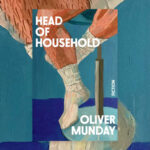I was five years old and headed to my first playdate with the girl upstairs since I had learned to read. To demonstrate my newfound power, I decided to bring a Berenstain Bears book to her apartment. Really, I should have known better. In the Upper West Side co-op building where I grew up, my playdates were never carefree encounters. My father was the building’s superintendent and so, in some respect, the girl upstairs’ parents played a role in employing him, helped provide my own family’s rent-free basement apartment, and gave us, most crucially of all, health insurance. What did I understand about health insurance at that age? I understood the most important thing: It was what made it so we were able to see a doctor.
Which meant playdates with the girl upstairs weren’t just about socializing, in my mind, but about helping my family survive. I was performing for the building’s residents, proving that my parents were wonderful parents, that my dad deserved his job managing their apartment problems and complaints, that everyone should want to keep him, and us. Alone with my parents, I could be stubborn, selfish, avoidant, needy. But during playdates upstairs, I was a model child. I tried to seem accommodating, well behaved, imaginative, and bright. Somehow I saw this as protecting my parents so that they could keep protecting me. Our well-being was interconnected with the building.
But then I screwed up my performance. I learned to read.
When I entered the apartment upstairs clutching my book, I felt the familiar brief starburst of awe, like two consonants clacking together in my chest. Our own basement apartment was small and dark, while the girl upstairs’ apartment boasted big windows, plants that gulped greenly and greedily at all the morning light, cats in a perma-nap stretched out on a shining piano, and a kitchen which contained not just plates and bowls but elaborate vessels with names like “tureens.” What must it feel like to own a tureen?
Well, now I owned something of my own. This book, and the adventures of the bears inside it.
Usually the girl upstairs and I spent our playdates pretending to be princesses or witches or Little Mermaids or mothers. But now I sat in front of her and did not pretend to be anything but my own damn self. The girl upstairs was younger than me and she couldn’t yet read. Her mother was in the room, and watching. I opened up the book. Maybe I paused. It was a kind of gift to the girl upstairs, I decided finally, this act of reading, of storytelling. What was there to hide? I unleashed the full strength of my new supremacy. I modulated my own voice to reflect the voices of the different bears. Did I ham it up a little? Probably I hammed it up a lot. I wanted to entertain. And I wanted to seem grownup too. Grownups, when they read to you, were always giving extra care to voices, and, in their enthusiasm, making the Berenstain Bears sound a little bit theatrical, a little bit desperate.
After the playdate, the girl upstairs’ mother pulled my mother aside when she’d come to pick me up. She had said that my reading to her daughter was making her daughter feel inadequate. Could I please, in the future, not read to her? Could I leave my books in the basement?
My mother told me about this request later, back in the safety of our own apartment. She was angry. She made it clear to me that I could be angry too. I looked at her hands, at the inflammation that caused a torque in her fingers. My mother had developed chronic arthritis when she was twenty-eight and, struggling to walk, had to quit her job watering plants around the city. One of my father’s previous jobs as a super had only provided health insurance for him, and whatever he managed to save had gone straight to paying for an individual healthcare plan for my mother and me. We were all covered for medical insurance under the new plan the building bought for us. Still, here she was, angry at the mother of the girl upstairs. Angry on my behalf.
And then I did something that I still remember vividly, because it felt totally new: I played pretend with my own mother, acted angry too. But in truth I felt something else. A kind of shame. Wasn’t the girl upstairs’ mother a little right? Hadn’t I wanted to seem like an adult and wouldn’t that naturally make her daughter feel inadequate? Hadn’t I done all the voices? Wasn’t some part of me trying to flaunt that I had something the girl upstairs did not? (And was I trying to flaunt it to the girl upstairs—or to her mother, who I knew was watching?)
Had this behavior, this moment of pride disguised as a good deed, actually put my father’s job at risk?Scariest of all—had this behavior, this moment of pride disguised as a good deed, actually put my father’s job at risk?
Thinking back, of course, it seems ridiculous that I believed my decision to read a book in front of a tenant could affect the status of my father’s job. Now it’s clear to me that this belief had less to do with my ability to read a book than with my ability to read my parents’ anxiety. I didn’t know the phrase “social safety net” but I knew my parents didn’t feel they had one. I remembered how much more worried they had been before my father got this job. Because the health insurance the job provided was so crucial, my father would stay in that same job as a super at that same building for over thirty years, until both he and my mother were on Medicare. They moved to the Hudson Valley last August and when the coronavirus started spreading in New York City, my fear was tinged with immense relief that my father, by a matter of months, had left that job. If he was just a little younger, I knew that despite the risks, he would still be there, cleaning doorknobs and mopping floors and dragging the tenants’ trash onto the street and hosing dogshit off the sidewalk and fielding panicked calls from tenants in a calm voice, as if everything was fine. A sixty-six-year-old man, playing pretend.
There I was, decades earlier, pretending outrage to my mother.
Still, the next time I had a playdate upstairs, I left the Berenstain Bears behind. I don’t remember what we did on that playdate. Did I act like I had forgotten to read? I can imagine staring at an open book the girl upstairs had splayed on the floor, can almost see myself trying, with real effort, to unlearn the letters there, to strip them once more of meaning, to turn all the vowels into a meaningless howl. Probably the girl upstairs and I played with dolls that day, with stuffed animals. We gave them histories and personalities. We made up stories for them.
When, as an adult, I began to write a novel about a building superintendent and his daughter, about the ways they try to navigate their own places in systems of privilege and power, it felt a little like giving meaning back to those letters I had to stare at and pretend not to know, to give import to the symbols I had pretended, on those subsequent playdates, weren’t legible. I played with putting in a scene where my protagonist also has to hide her ability to read from a tenant, I even wrote that scene, but ultimately cut it from the manuscript. I realized it didn’t belong to my protagonist, who by that point had become her own weird self with her own childhood troubles distinct from mine. What had happened during that playdate wasn’t my fictional character’s wrong to right. It was mine to hold and think about in real life, mine to try to read and understand. It was stranger than the word “tureen.” It was something I must try to own.
***


















